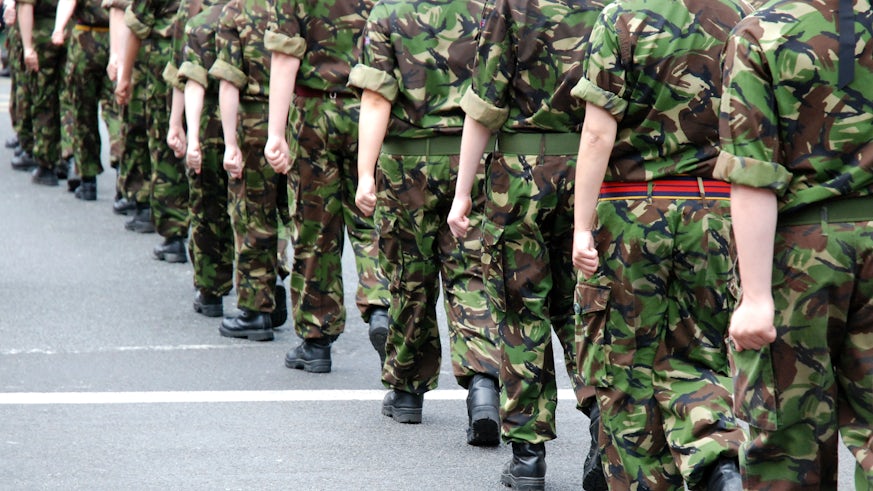Pioneering alcohol advice helps UK Armed Forces
26 February 2020

A system that motivates health professionals to ‘Have a Word’ with patients about alcohol use has been rolled out across the UK’s Armed Forces – a public health world first for defence.
The ‘Have a Word’ training programmes and brand was initiated and developed by Cardiff University’s Violence Research Group to get the results of their trials of alcohol screening and brief advice implemented in the NHS.
This gives practitioners the skills to deliver effective advice to patients to prompt behaviour change around alcohol.
Already adopted by Public Health Wales and NHS England, ‘Have a Word’ was introduced in 2016 to help address alcohol misuse in the UK Armed Forces - reportedly higher than in the general population, with estimates of increased risk drinking levels ranging from 39% to 67% of the total service population.

A paper co-authored by Professor Jonathan Shepherd, Violence Research Group, and published in BMJ Military Health, explains how UK Armed Forces screened 276,000 personnel over two years during routine check-ups and treatment by military dentists.
“Implementation has been outstanding,” said Professor Shepherd. “By having a brief documented conversation at the point of treatment, defence dentists were able to dispense brief advice to personnel who needed advice and guidance about their alcohol consumption.
“As part of the ‘Have a Word’ roll out, over 1,000 Defence Primary Healthcare (DPHC) personnel were trained to advice and signpost patients who indicated a risk of potential alcohol-related harm."

Before the system was introduced, UK Defence offered no routine screening or advice on alcohol abuse. We’re delighted that ‘Have a Word’ will form part of a broader public health approach across UK Defence in years to come.
Patients attending DPHC Dental Centres are now routinely screened, representing the single largest use of alcohol screening in a military population to date.
Co-author Mark Dermont, Defence Public Health Unit, Defence Medical Services, Lichfield, writes: “The impacts of alcohol misuse on Service Personnel (SP) can be significant and include post-deployment violence, negative relationship changes, problems at home, self-harm and various disciplinary offences - all of which threaten individual well-being and can harm operational effectiveness.
“The initiative represents a first step towards the goal of a standardised alcohol screening and treatment pathway across DPHC while recognising that the Defence Medical Services are only one aspect of the broader public health approach required to tackle alcohol-related harm in Service Personnel.”
‘Have a Word’ was supported by wallet cards, Frequently Asked Questions (FAQs) for dental teams and direction on appropriate interventions based on an individual’s score for alcohol misuse. Potentially dependent drinkers are offered a primary care referral to a DPHC medical facility.
Patients can also be signposted to the confidential National Drinkline using the phone number in the wallet card.




